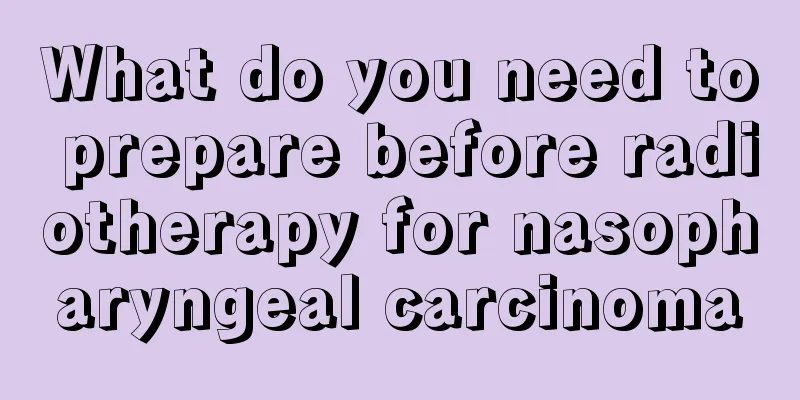Brucellosis treatment plan Brucellosis patients must remember

|
Brucellosis is a common disease in pastoral areas. It is divided into two infectious periods: acute and chronic. The symptoms of each period are different, so the treatment of brucellosis also needs to be divided into the acute and chronic periods for targeted treatment. Let us take a closer look at the treatment plans for brucellosis in different stages! 1. Acute treatment (1) General treatment and symptomatic treatment: including bed rest, vitamin and water supplementation. Physical cooling should be applied to patients with high fever, and indomethacin suppository can be used for symptomatic treatment of high fever. Patients with severe headaches and joint pains should use analgesics; patients with obvious poisoning symptoms and severe orchitis can use appropriate amounts of adrenal cortex hormones. Corticosteroids such as prednisone may be given in severe cases. Patients with severe myalgia may require a stronger analgesic such as codeine. (2) Antimicrobial therapy: Relapse is common when a single antibiotic is used, so combination antibiotic therapy is often given. ① Combination therapy of rifampicin and doxycycline The daily dose of rifampicin is 600-900 mg; doxycycline 200 mg per day, taken orally in divided doses for 6 weeks, is the preferred option. Tetracycline and rifampicin can also be used in combination therapy. ②Combination therapy of streptomycin and doxycycline The daily dose of streptomycin is 1g, divided into 1 to 2 intramuscular injections, and the medication lasts for 2 to 4 weeks. Doxycycline 200 mg orally per day, divided into 2 doses, for 6 weeks. Gentamycin or amikacin can also be used instead of streptomycin. Streptomycin can also be used in combination with rifampicin or with tetracycline. ③For Brucella meningitis, chloramphenicol and streptomycin can be used in combination or rifampicin plus clacifloxacin can be used in combination. ④Complex sulfamethoxazole also has a certain effect on this disease. The course of treatment should be 4 to 6 weeks. If it is too short, relapse is likely to occur (relapse rate 4% to 50%). Streptomycin should also be used at the same time. The adult dose is 0.75~1g per kilogram, divided into 2 intramuscular injections, and the course of treatment is 3 weeks. Children younger than 8 years may be given trimethoprim-sulfamethoxazole plus streptomycin or rifampin because tetracycline can damage children's teeth. 2. Treatment of the chronic stage is more complicated and should include pathogen treatment, desensitization therapy and symptomatic treatment. (1) Pathogen treatment: Patients with acute onset, chronic active, or chronic disease with local lesions or positive bacterial culture all require pathogen treatment. The method is the same as that in the acute phase. (2) Vaccine treatment: The initial dose is 250,000 bacteria per day, and the dose is gradually increased. By the end of the treatment, the vaccine can reach 150 million bacteria per day. One course of treatment is 10 to 15 days. (3) Treatment with hydrolysins and lysozymes: The initial dose is 1 mL per day, which can be gradually increased to 2 mL per day. The course of treatment is 10 to 15 days, and it is used in combination with antibiotics. Prognosis The prognosis of this disease is generally good, and most patients tend to recover on their own even without treatment. Those who are not treated with antibiotics can generally recover within 1 to 3 months, but they are prone to relapse. The course of the disease is greatly shortened if treated promptly. The main causes of death are endocarditis, severe neurological complications, etc. In a few cases, joint lesions and tendon spasms may remain, limiting limb movement. |
<<: How to check for brucellosis? Three tests that brucellosis patients must do
>>: Will real honey crystallize? The truth is this
Recommend
What should I do if my intestinal mucosa falls off?
In our daily lives, as people’s work pressure inc...
What is Colon Cancer
What is colon cancer? Colon cancer is a common ma...
How much does a one-time surgery for an ovarian tumor cost?
The prevalence of ovarian tumors is still relativ...
What are the benefits of boiling water in an iron kettle?
With the continuous development of living standar...
How to distinguish stomach heat from stomach cold? What are the symptoms of stomach cold?
If we don’t understand our own physical fitness, ...
What is the gold standard for diagnosing thyroid cancer?
Pathological diagnosis is the gold standard for d...
What should I pay attention to after radiotherapy for cervical cancer
In my country, the incidence of cervical cancer i...
How to remove lead and mercury poisoning spots?
Lead and mercury are substances that are harmful ...
Treatment of different metastatic pathways of gastric cancer
If gastric cancer is not well controlled in the e...
What causes lumps around the belly button?
It is a common problem to have lumps around the b...
What is the difference between black tea and oolong tea?
Drinking tea is a very elegant and comfortable li...
Is it normal for babies and young children to fart a lot?
In life, everyone farts. In most cases, farting i...
What is the standard posture for meditation?
For people who have a strong concept of health pr...
Can I do jogging if I have lumbar disc herniation?
Many patients with lumbar disc herniation are oft...
When is the most accurate time to use a pregnancy test stick?
In the past, it was complicated for women to know...









